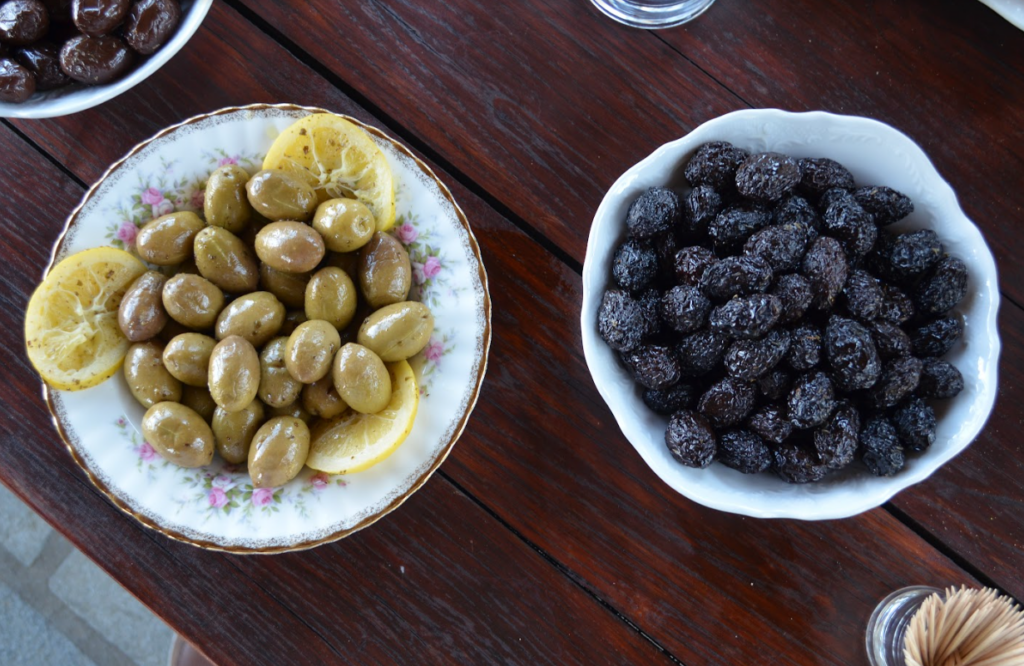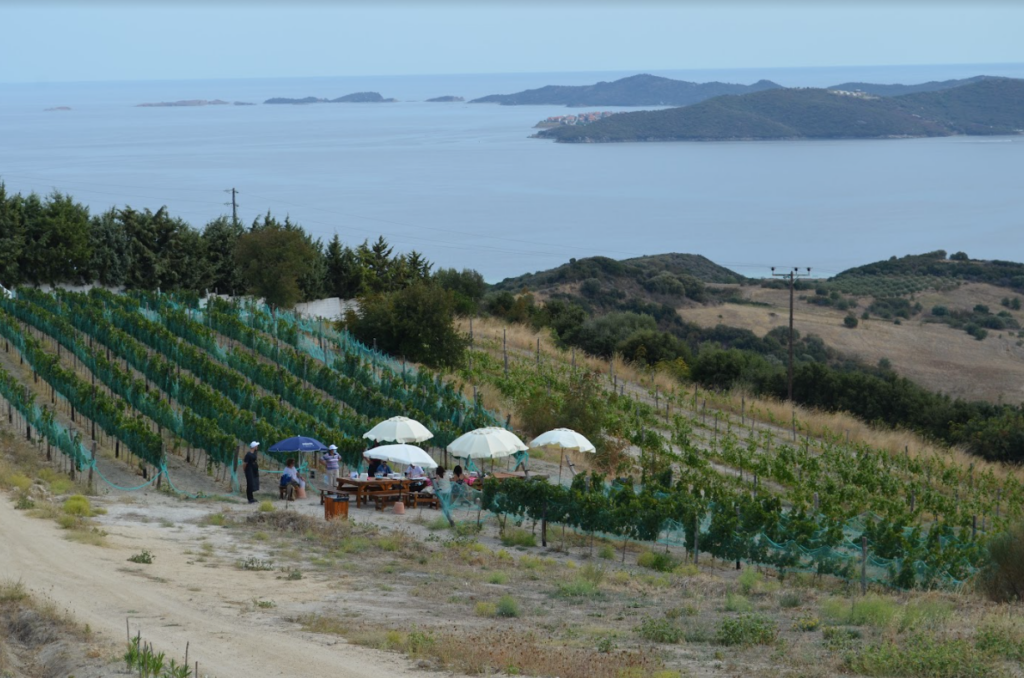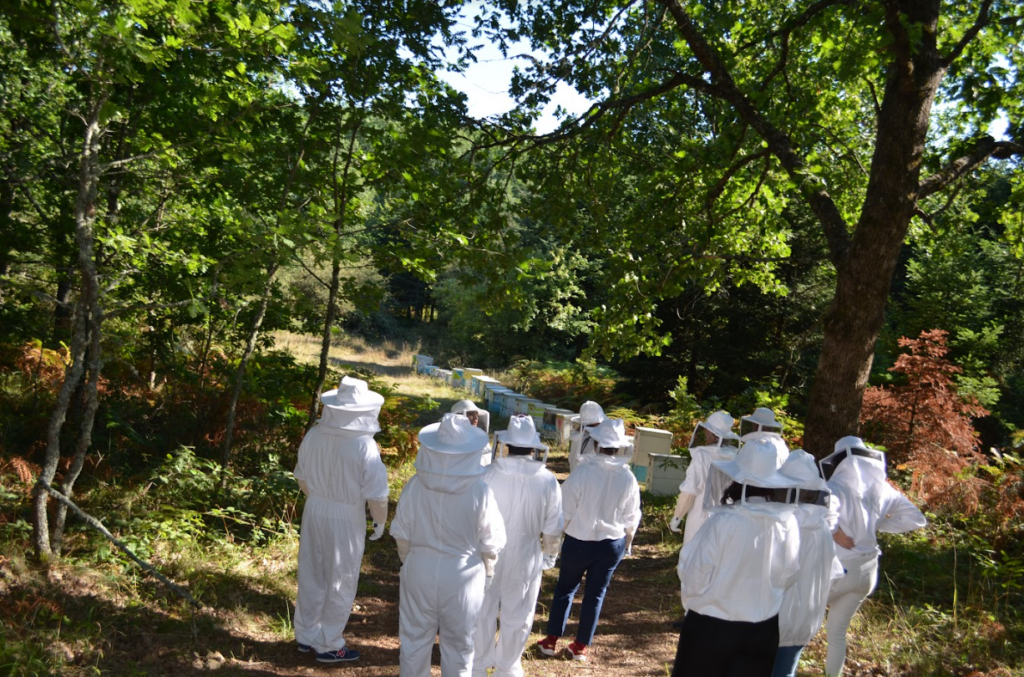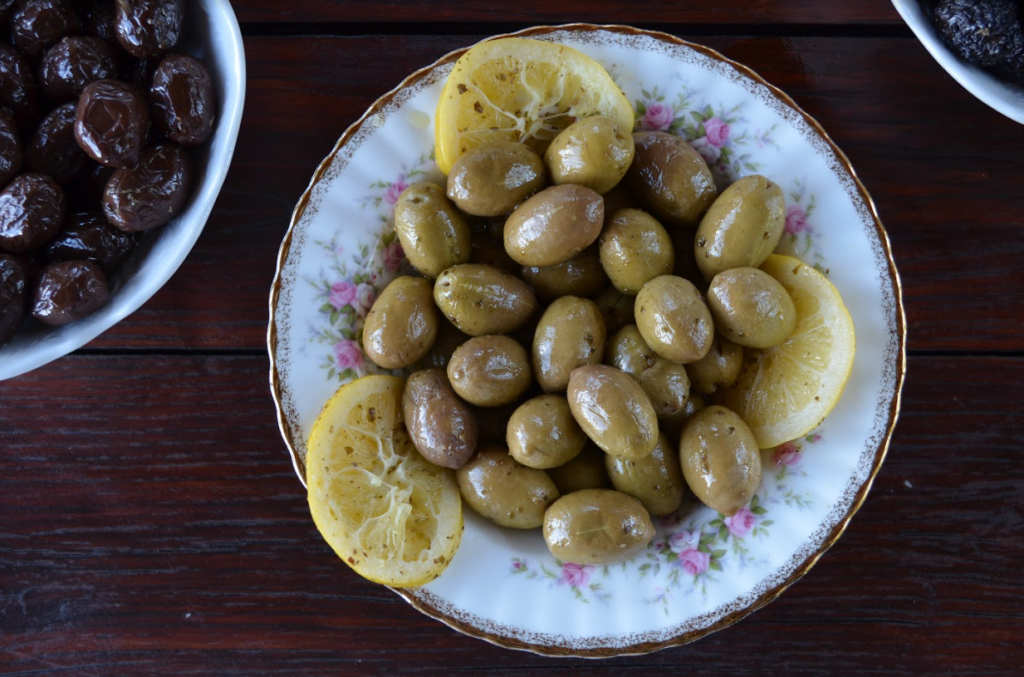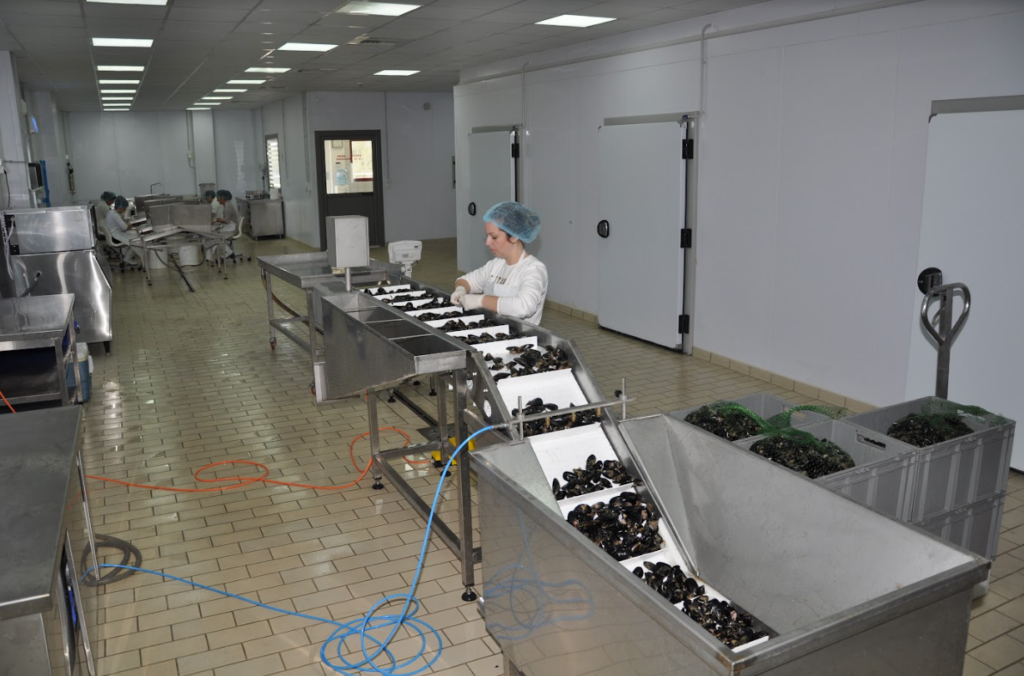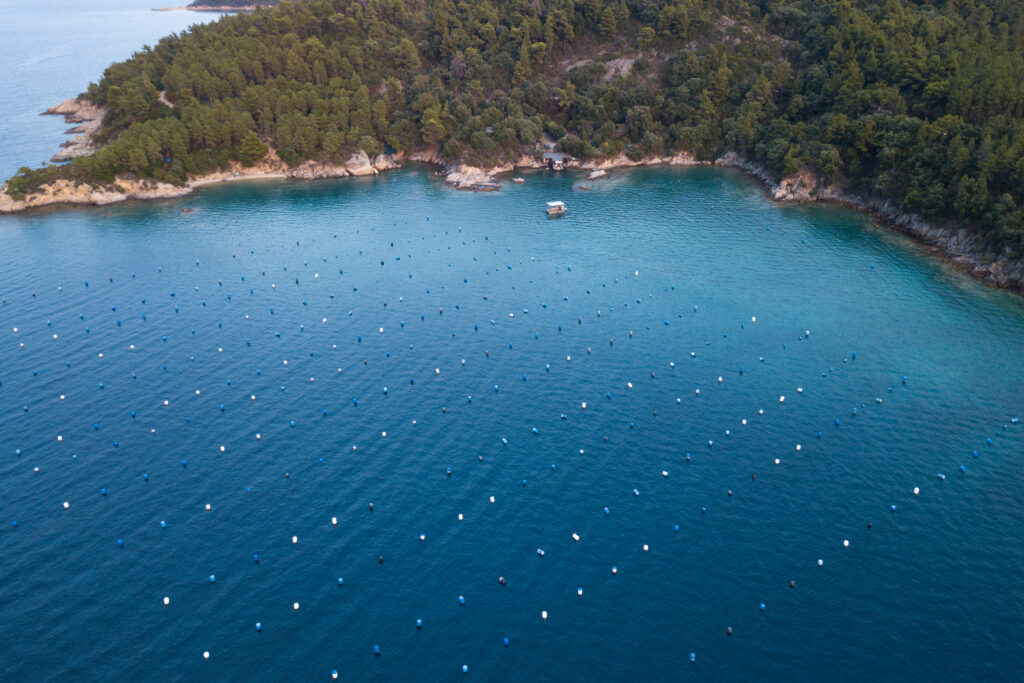Halkidiki Green Olive, Wall Street, Martin Scorsese and the exports
Dozens of other exportable products of Halkidiki are now looking for the path that the green olive took and reached the American table and Hollywood to star as a snack in “The Wolf of Wall Street” (directed by Martin Scorsese with Leonardo DiCaprio and Matthew McConaughey). We may not know who came up with the idea, or how much it cost to get into the dialogue between DiCaprio and McConaughey and and the latter’s use of “Halkidiki” as the origin of the green olives which they enjoyed with their drink, but it is certain that the brand of the Halkidiki green olive in the ten years that the film has been released, it has been strengthened like no other Greek food product in the markets of the world.
In the last two years the representatives of the productive actors of the Halkidiki by interpreting the great interest for its food products from the point of view of United States have trumpeted “advance” to the American market that shows great potential.

Food, the great advantage of Halkidiki
Many people in Halkidiki characterize food products as the the greatest advantage of the region that should be highlighted and linked to tourism, with a two-way benefit.
After all, it is no coincidence that today, the country that imports the most Halkidiki products is Germany and German tourists are the ones who show off every summer in the first positions of Europeans who prefer it.
The green olives have now become a souvenir, as one of the most popular olive oil producers of Halkidiki innovates with a packaging that is now a pocket pack of olives for those who want to bring back to their place a unique taste of Macedonia.
Halkidiki ,that is known on the world map of tourism for its unique beaches and its natural beauty, receives annually about 5 million visitors, exports more than 90% of its olives (mainly the green natural or pitted olives, filled with peppers or almonds). Its own export alone covers 42% of the of all exports of Greek olives. It is characteristic that the largest olive export company based in Kalives, Halkidiki(the largest of the Greek olive oil industry) which employs 365 people, exports green olives to 76 countries and contributes to the national economy 60 million euros.
According to the National Interprofessional Organization for Table Olives more than 300,000 tones of olives are produced on average annually in Greece of all varieties for table use, a quantity that constitutes the 10% of world production. Last year exports of table olives exceeded 225,000 thousand tonnes (covering 12% of Greek exports) with value of around 650 million euros and propelled the country to the first place of table olives in the world. The US is the country with the largest imports of Greek olives with the second largest imports of Greek olives being Germany. According to the statistics from the Halkidiki Chamber of Commerce, there are approximately 3,000 manufacturing companies operating in the region. These companies are primarily involved in the food and trade sectors. Additionally, there are around 130 green olive factories in operation within the region.
Throughout the county with a total population of 100,000 inhabitants, there are about 5 million olive trees with the dominant varieties being the thick olive and Halkidiki olive. The green olives of Halkidiki with even 7 products are among the products of the Protected Designation of Origin.
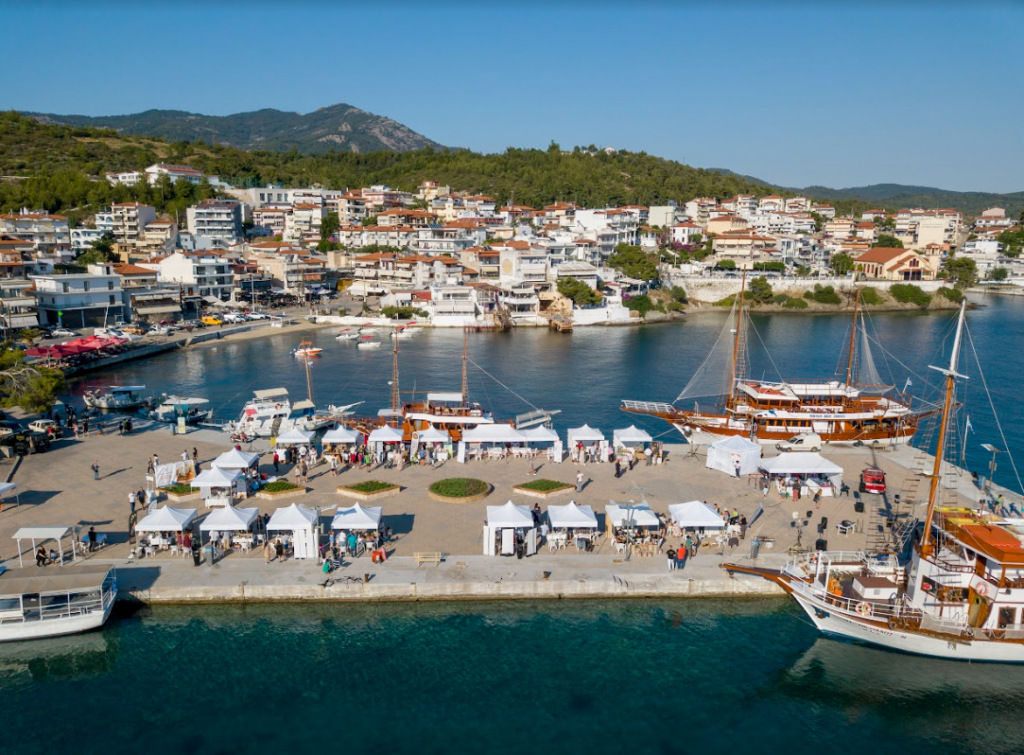
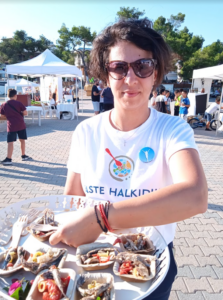
Green olive and honey
Olive oil, cheese, grape leaves, wines, beer, honey, meat, shellfish, herbs, nuts, pies, salads, ntolmadakia, jams, wines and spirits make up the menu of the Halkidiki. Halkidiki also has the largest number of beekeepers (6,500) representing 32% of the total number of beekeepers in the of the country producing 1.600.000 kg of honey annually. The Agricultural Beekeeping Cooperative of Nikiti in Halkidiki with 70,000 bee swarms is one of the largest in Europe as it was founded in 1952. It produces a wide variety of honey products that exceeds annually 1000 tons of 15 beekeeping products. At its administrative boundaries, on the peninsula of Sithonia lies also the largest single organic vineyard in Greece. Through the presentations that have recently been made for the gastronomy of Halkidiki was highlighted and multitude of its special ingredients, such as:
- The wine leaves of New Gonia: Organic farming that currently produces more than 75,000 vases of grape leaves, dolmades, pies, pie crusts and vine tops.
- The Greek breed of black pork: In Halkidiki is the base of the newly established Agricultural Cooperative “Myrtali” created for its promotion.
- 8 beers (labels) from two microbreweries.
- 7 products of Protected Designation of Origin such as: olive oil from unripe olives, Galano from Metagitsi (variety of olive oil) olive oil, feta cheese, yellow cheese, batzos of Halkidiki, 13 different cheese and dairy production units.
Halkidiki also has:
- its own traditional village sausage of Ierissos which is a secret family recipe and its own excellent meats with spicy and citrus scents.
- one of the two registered meat-producing breeds of cattle in the country, the “Greek blond”.
- Its own “fish” with is not galeon..but bullet tuna (Auxis rochei)a fish belonging to the tuna family and arriving from the Black Sea to the Gulf of Ierissos in May. It is a fine delicacy.
- Mountovina (in Arnea): The tsipouro produced by the beekeepers is made from the wax that is trapped in the honeycombs after the harvest. It undergoes a process of being boiled, melted, filtered, and then stored in barrels to ferment for 7 months before it goes through the distillation process.
Diamantidis: we need extroversion
Chalkidiki after the receding of the pandemic came out strong in the markets and in the last two years the Regional Unit of Central Macedonia has increased its exports by almost 50%, reaching 254 million euros compared to 173 in 2018 and 133 in 2014.Speaking at a conference on the development of Halkidiki, the Simeon Diamantidis, president of the Exporters’ Association of Halkidiki, pointed out that: “Exports of products are the basis for the sustainable strengthening of the country’s and the individual regions such as Central Macedonia and Halkidiki. Tourism is extremely important but many unpredictable factors can affect it and this is a problem. The development strategy of a region cannot be based on one unstable sector alone. That’s why we all need to focus on extroversion.”
Exports contribute to 15% of the GDP of Halkidiki and the food is higher and “far away” from other products in the composition of exported products since they cover the entire value of the 77,5% of exports. Non-metallic minerals account for 11.9 %, chemicals-plastics 6% and beverages-tobacco 2.8%. The best customers of Chalkidiki are Germany with a share of 22.7%, Russia (before the invasion in Ukraine) with 11.2%, Italy with 8.6%, Belgium with 7.4% and the USA with 7%. However, the second exporting company in the region is not from the food industry but a company that exports the its most important mineral: “Grecian Magnesite S.A.”. 72% of the white stone is exported to a total of 60 countries.
